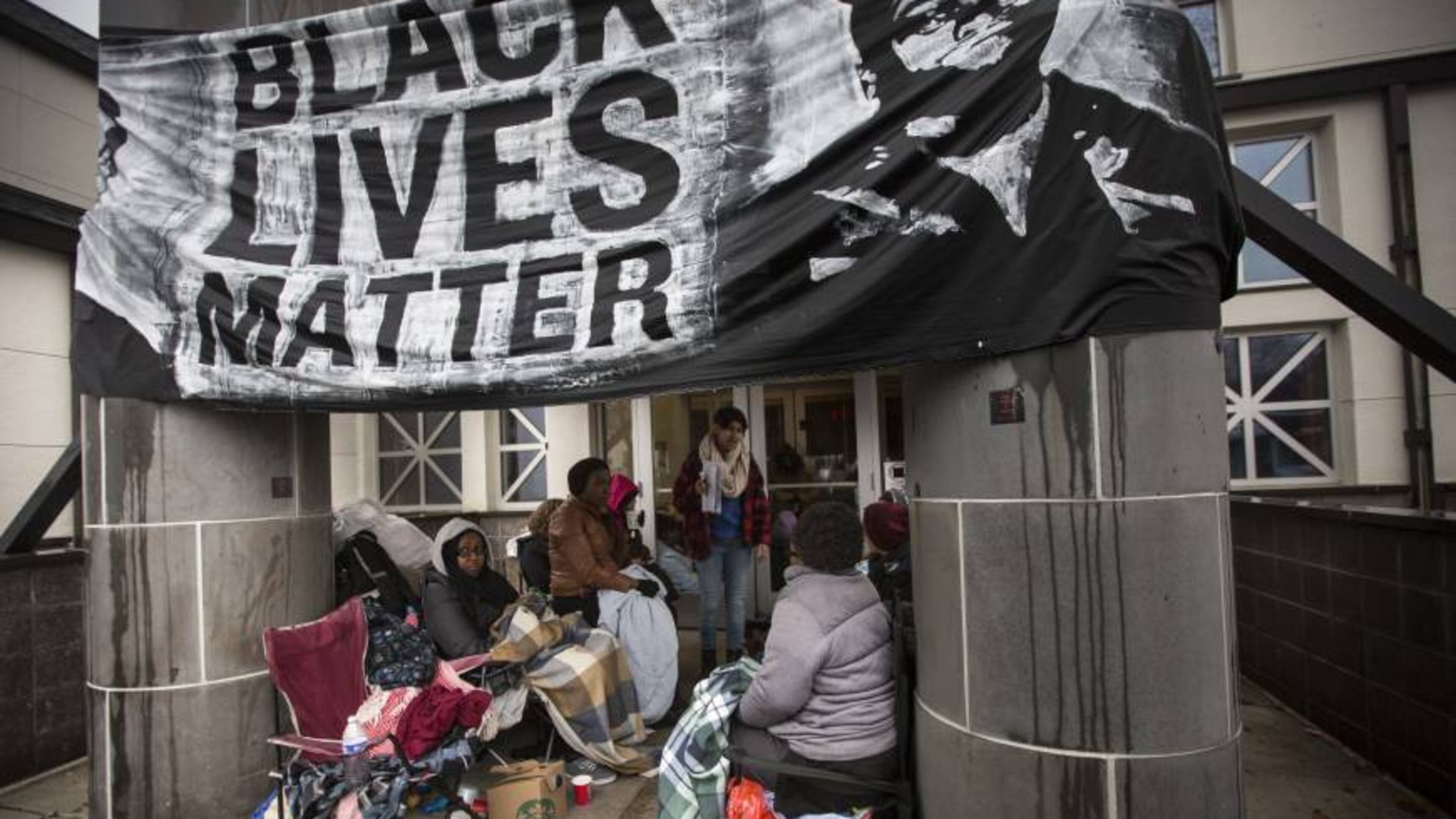Violence erupts at Black Lives Matter protest

Five Black Lives Matter protesters were shot and wounded in Minneapolis overnight. Police are seeking three suspects, described as two white males and an Asian male. The men, described by protesters as white supremacists, had been taunting and provoking protesters and were being escorted out of the area when they pulled weapons and began firing.
The protesters were demonstrating against the death of Jamar Clark, 24, on Nov. 15 in a police confrontation. Multiple witnesses have said Clark was shot in the head while handcuffed, a description that police dispute. Authorities have refused to release available video of the shooting, which reportedly recorded only portions of the confrontation. In the wake of last night's shooting, Clark's family has requested that the encampment outside a Minneapolis police precinct be abandoned.
Here's what we do know: According to reporting by the Minneapolis Star Tribune, the city paid out $14 million to settle allegations of police misconduct and brutality between 2006 and 2012, yet officers in almost all of those cases faced no disciplinary action. A police review panel established last year to review allegations has handled 439 cases; none has resulted in officer discipline.
In Chicago, authorities will reportedly indict a police officer today for first-degree murder in the shooting death of a 17-year-old black male more than 13 months ago. It will be the first such indictment in 35 years in Chicago. The victim, Laquan McDonald, had been in possession of PCP and armed with a knife, but long-suppressed video of that shooting apparently shows McDonald walking away from police when an officer jumps out of a police car, fires at him and hits him 16 times. No other officer on the scene fired.
Those who have seen the video say it depicts an execution, and Chicago authorities offered the McDonald family a $5 million settlement last summer before the family had even filed suit.
Egregious as it apparently is, the case probably would have been ignored if not for the video. The police union, for example, had claimed that the officer fired only after McDonald lunged at him with a knife; there is apparently no evidence of that in the video, which will be released by court order this week. According to some reports, authorities will release it Thanksgiving Day.
As the New York Times recently reported, more than 28,000 complaints of police misconduct were filed in Chicago between 2011 and 2015; 97 percent of them were dismissed with no action taken against the officer in question. In 2015, more than 99 percent of such complaints were dismissed with no action taken. Given that overall record, it would seem safe to assume that the 28,000 official complaints comprise only a fraction of such incidents. In the rare cases in which action was taken, black officers were twice as likely to be disciplined as their white colleagues.
The officer who shot McDonald, Jason Van Dyke, had 18 complaints filed against him, including allegations of brutality and racism. No action had been taken on any of them.
It's a pretty straightforward principle: Those whom we entrust to enforce the law deserve our full support. But that support does not and cannot imply a de facto exemption from that same law, nor an immunity from judgment and accountability. And while that principle applies regardless of the race of officer or citizen, black Americans have legitimate reason to believe that when it is violated, they are disproportionately its victims.
